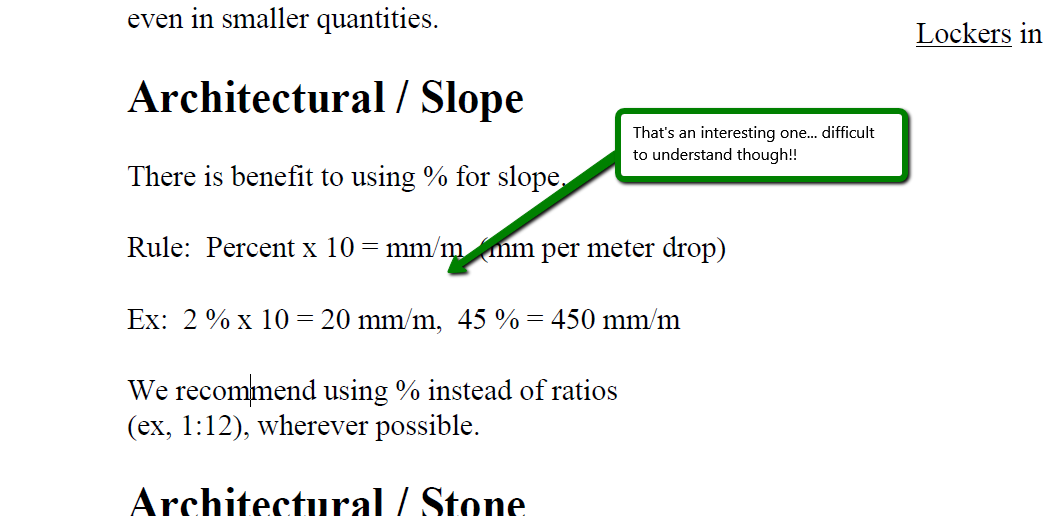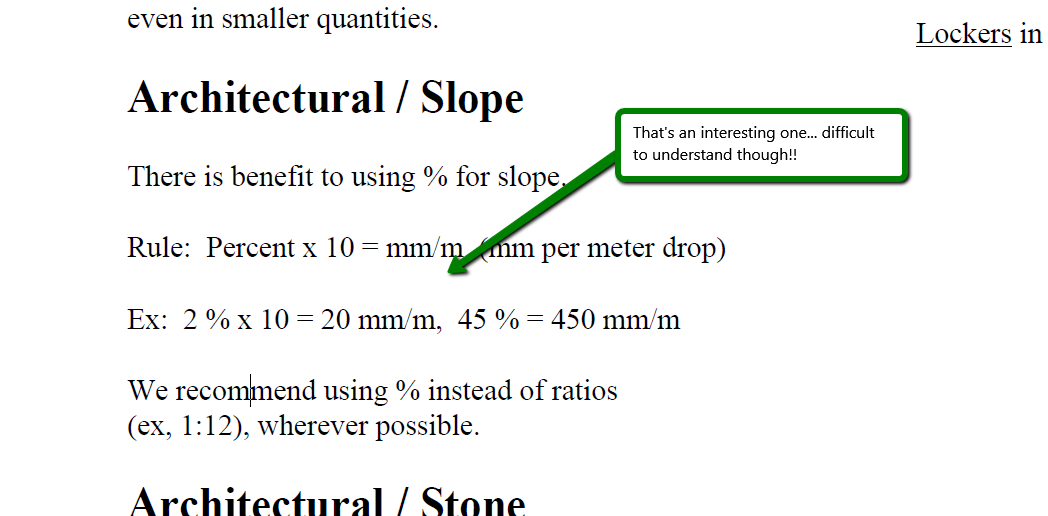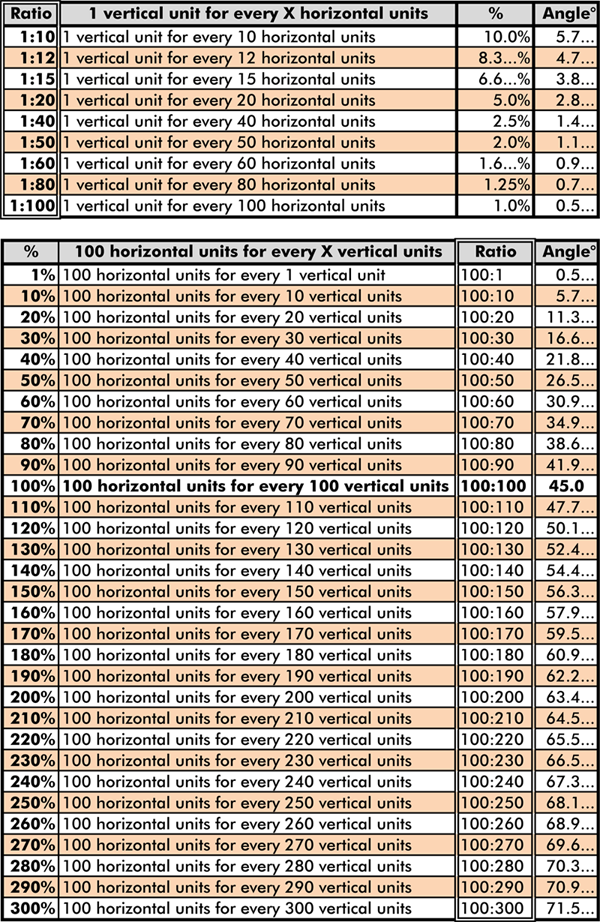Architectural Design Guide Metric for USA?
-
Krisidious thanks for sharing...
and this is my 'little helper' - I use him a lot

http://joshmadison.com/convert-for-windows/ -
Me too, Greg..... its been a fav for a long time.....!
Nice doc, Kris although this one is always a difficult because so many people use differing ways of reference.

I would always use ratio. To me its the most simplest way to convert. Say you have a ratio of 1:14 for a PWD ramp over 330mm rise and you want to know its length; its a simple calculation of 330 x 14 = 4620mm
Degrees and percentages force you to have to introduce another set into you conversion. Actually, just thinking about using percentage, if horizontal is 0% and vertical is 100% then 90% is 100%.....

-
Architectural Design Guide Metric for USA - "Metrics for Dummies"
-
@utiler said:
if horizontal is 0% and vertical is 100%
100% = 1:1, rise = length.
Vertical = #INF - Error, divide by zero! As nonsensical as writing a gradient of 1:0. -
@trogluddite said:
@utiler said:
if horizontal is 0% and vertical is 100%
100% = 1:1, rise = length.
Vertical = #INF - Error, divide by zero! As nonsensical as writing a gradient of 1:0.I had dinner with a few colleagues last night and spoke of this very subject. This was the general consensus:
Ratio: 1:8 or 1:14 is easiest to relate to Standards as that is how they're written. [ramps, driveways, gradients in general]
Percentages: Used in engineering circles; mostly to do with structures. 0% is horizontal and 90° is 100% so 50% is 1:1....
-

Coming back to this now the reference of percentages as mm/m is misleading. 450mm over a metre is actually 24.23 degrees which is certainly not 45%.
-
@utiler said:
Percentages: Used in engineering circles; mostly to do with structures. 0% is horizontal and 90° is 100% so 50% is 1:1...
It may have been a concensus, but that doesn't make it right - 100% = vertical is is a very common misconception, as it does somehow seem intuitive.
Grade as a percentage is simply. 100 * (rise/run)
The only way that vertical = 100%, 45deg = 50% could be true is if it were a measure of angle (not gradient); i.e. 100/90*Angle(degrees). But we already have an accepted unit of angle called the degree, and 100/90 is an infinitely recurring decimal, making for a very troublesome conversion factor.
-
Thanks Steve. I think I'll stick to ratio or degrees, percentages seem thwart with danger!
-
I always see ramps/slopes/driveways/roofs etc. as a ratio
Unit format is irrelevant
Easy to draw using just two lines
Conversion to angle doesn't help me...

-
There's a place for this: http://forums.sketchucation.com/viewtopic.php?f=15&t=46213
-
@utiler said:
Thanks Steve. I think I'll stick to ratio or degrees, percentages seem thwart with danger!
Fraught with danger! -- a warning from Captain grammar.
-
@utiler said:
percentages seem thwart with danger!
Yes, I quite agree.
Seems odd really, the SI system was conceived as a way to avoid confusion - a unified metric for the whole globe to make the exchange of ideas and goods more simple and reliable.
I blame those dastardly computer geeks - I was told once the tale, possibly urban-myth, that the EU changed from ratio to percentage for road gradients because it made life easier for the geeks who were digitising the survey data of the old hand drawn road maps. Sure as hell confused all the motorists when the UK's "steep hill" road signs were changed!Part of the confusion possibly comes from yet another unit, the Gradian, or Gon, which you could think of as "metric degrees", where there are indeed 100gons in a right-angle. The silly name "gon" was invented precisely because of the obvious similarity of "gradian" with words like "gradient".
That unit is deprecated by most standards organisations these days, being retained in only a few specialised applications (some armies still use it for aiming ballistic weapons). I think that one stood as much chance of being accepted as "decimalising" time units! -
Advertisement
 you're quite rite...
you're quite rite... 






